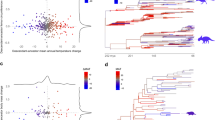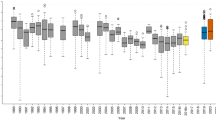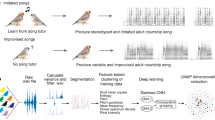Abstract
DR. W. E. COLLINGE is apparently under a misapprehension as to the degree to which it is claimed that birds eat butterflies. I do not think that it is ever claimed that these insects form the principal food of any bird ; only that they are eaten to an extent sufficient to have a selective effect, and I believe that work by Prof. R. A. Fisher has demonstrated mathematically that this extent need be very much less than was previously supposed.
This is a preview of subscription content, access via your institution
Access options
Subscribe to this journal
Receive 51 print issues and online access
$199.00 per year
only $3.90 per issue
Buy this article
- Purchase on Springer Link
- Instant access to full article PDF
Prices may be subject to local taxes which are calculated during checkout
Similar content being viewed by others
References
NATURE, 135, 194 (Feb. 2, 1935).
Pitman, C. R. L., J. Bomb. Nat. Hist. Soc., 33, 204 (1948).
Observation 22 of the paper under discussion.
Chapin, J. P., Natural History, 22, 66 (1922).
Carpenter, G. D. H., “Mimicry”, p. 69. (Methuen and Co., Ltd., 1933).
Author information
Authors and Affiliations
Rights and permissions
About this article
Cite this article
CARPENTER, G. Wild Birds and Butterflies. Nature 140, 974–975 (1937). https://doi.org/10.1038/140974b0
Issue Date:
DOI: https://doi.org/10.1038/140974b0
Comments
By submitting a comment you agree to abide by our Terms and Community Guidelines. If you find something abusive or that does not comply with our terms or guidelines please flag it as inappropriate.



